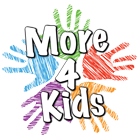By Ann Bowers
Where can I find ideas on how to home school?
-
The Internet is the best place to start. Type in “Homeschooling ideas,” “Lesson plans,” “Crafts,” “Projects for kids,” “Teaching materials,” “Ideas for teachers,” or any subject topic, such as “ocean,” “frogs,” “history of Florida,” “War of 1812,” “using punctuation,” “how to write an essay,” etc. and do a search.
-
Subscribe to a homeschooling publication. Magazines, such as Jack and Jill, Highlights, Teacher have ideas and projects.
-
Join a homeschooling organization.
-
Read books about homeschooling.
-
Explore your local library for ideas and materials. Check out books for the children to read. The children’s librarian can help you find books at the correct level and in their areas of interest.
-
Share ideas with other homeschooling parents.
-
Visit local schools during Open House and get ideas from classrooms.
-
Textbooks (old or current) have lots of ideas in them. Buy old ones from yard sales.
I’m worried that I can’t do this.
With each new challenge we face in life, there are successes, failures, problems, and worries. Homeschooling is new to you, but you will learn how to do it. You will discover how your children learn best and the types of teaching techniques they respond to with enthusiasm.
You will have successes and failures and worries. Celebrate your successes. If you fail, try again. If a problem occurs, solve it. Let your children help solve any problems that come up. Be flexible. If your son is hyperactive, let him take frequent ten minute breaks to run around. Give him hands-on learning activities, for example, he might enjoy practicing spelling words using colored chalk on the patio or magnetic letters on the fridge. Use the computer to hold his attention.
Get out and observe teachers at work, in classrooms and in home school situations. Make a teacher friend of whom you can ask questions and advice. Don’t expect to know everything. No one does. Don’t expect that your children will always joyfully want to do schoolwork. They won’t. You may have to be very firm with them when it comes to learning rote material that takes practice, but is not particularly fun, such as learning the multiplication tables. Teaching is a challenge and it’s not always a joy, whether you do it at home or in a classroom of 30. But, at home you have the flexibility to do it in ways that you and your children will enjoy; you don’t have to follow anyone else’s requirements for how to teach!
Kids don’t need geniuses or know-it-alls. They need patient, resourceful parents who will help them find the answers to their questions, who are willing to spend every day with them, who will drive them to enrichment activities or to their friends’ houses, and who don’t obsess about test scores.
What if my child needs to learn something I know nothing about?
Of course he/she will, at some point! You don’t know everything! At that point, you and the child are going to learn together. This is a vital lesson for children: Learning is a lifelong process. Be honest and teach the child how to find the information and learn it.
Use your resources: the Internet, the library, your books and magazines and textbooks. Consult other people, especially those who work in the field you’re learning about. Don’t forget television as a resource for information, especially documentaries.
If the subject is one you cannot seem to master (for me, that would be algebra), get a tutor for the child, enroll him/her in a class, get a computer program that teaches it, or ask a friend to help (an engineer, mathematician, or teacher). Some parents do enroll their children in public high schools for this very reason.
Start collecting homeschooling ideas now and decide how you want to organize them. As a teacher, I kept file folders by topic in a 4 drawer file and a very large box for samples of projects by unit, for example, The Ocean or Halloween. You could save your ideas on index cards, put them in folders or boxes labeled by topic (subject is too broad), or put them on the computer and keep a Table of Contents to access them quickly. If you don’t want to save samples, take pictures and keep them on computer disks or in the file folder.
No part of this article may be copied or reproduced in any form without the express permission of More4Kids Inc © 2006
Posting Search Tags: education homeschooling










Add Comment